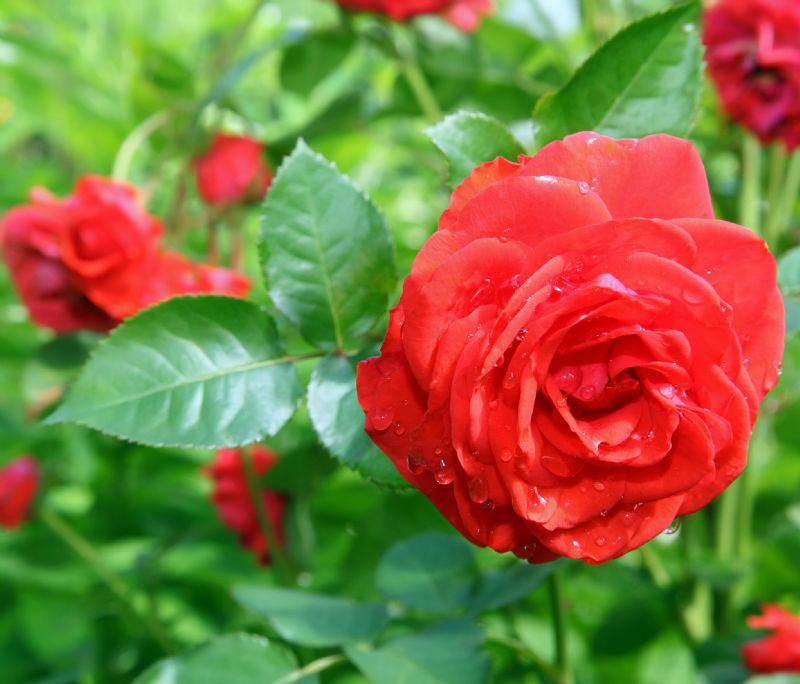- Home
- News, Articles & Reviews
We are hiring! Please click here to join our growing magazine delivery team in Gloucestershire!
Areas
Homes & Gardens
Archive

Get sowing and growing
All Areas > Homes & Gardens > In the Garden
Author: Daniel Hoggins, Posted: Friday, 24th May 2024, 09:00
June is a time of real promise in the garden, retaining the freshness of spring with abundance of the coming summer. It isn’t hard to appreciate the splendour of your garden this month. From the festival of flowers bursting into colour, to the vegetable garden burgeoning with bounty, remember to take time to enjoy it all.
However, if your vegetable plot is looking a little sparse, fear not. It is not too late to get sowing and growing. Tender plants such as courgettes and tomatoes have not long been taken outside to ensure safety from the elements. With the longer days and the warmer soil, now is a perfect time to direct sow runner beans, chard, beetroot, carrots, sweetcorn, lettuce and peas.
Consider succession growing
It is always a good idea not to get too carried away with the contents of the seed packet. If the seed is fresh then the germination rate should be pretty decent and instead of sowing all the seeds at once, consider succession sowing. This is where you sow a few seeds initially and then a few more later on, so you’re not left with a glut of a crop all at once and then nothing else to look forward to.
Whether you’ve got a large expanse of vegetable plots, an allotment, or a small patch at home, it really is rewarding to grow your own. If you’re growing tomatoes, courgettes, squashes, peppers, cucumbers or aubergines then you’re probably aware of the need to give them a feed. Instead of buying a chemical concentrate feed, consider making your own.
If you’ve got access to a clump of nettles or the space to grow a patch of comfrey down the bottom of the garden or in the nature area for your pollinators, then it couldn’t be easier to make your own fertiliser. Simply pick a bucketful of nettle and/or comfrey leaves and soak with water. After about four weeks the contents should be dark, liquidy and very smelly. Dilute this at 1:10 with water and feed away.
Encourage repeat flowering later into the year
Away from the vegetable patch, roses will need weekly deadheading. Cut the stem of the spent flower down to the next leaf to encourage repeat flowering later into the year.
After Oriental poppies have flowered, cut them back to ground level. It seems drastic but this will promote new silvery growth for the rest of the growing season.
Do keep an eye out for anything that may need staking or supporting. It is best to get in as early as possible to ensure the art of supporting with subtlety. If the plant appears to be supporting itself naturally, it will look far more satisfying as part of your garden.
Copyright © 2026 The Local Answer Limited.
Unauthorized use and/or duplication of this material without express and written permission from this site's author and/or owner is strictly prohibited. Excerpts and links may be used, provided that full and clear credit is given to The Local Answer Limited and thelocalanswer.co.uk with appropriate and specific direction to the original content.More articles you may be interested in...


© 2026 The Local Answer Limited - Registered in England and Wales - Company No. 06929408
Unit H, Churchill Industrial Estate, Churchill Road, Leckhampton, Cheltenham, GL53 7EG - VAT Registration No. 975613000You are leaving the TLA website...
You are now leaving the TLA website and are going to a website that is not operated by us. The Local Answer are not responsible for the content or availability of linked sites, and cannot accept liability if the linked site has been compromised and contains unsuitable images or other content. If you wish to proceed, please click the "Continue" button below:




